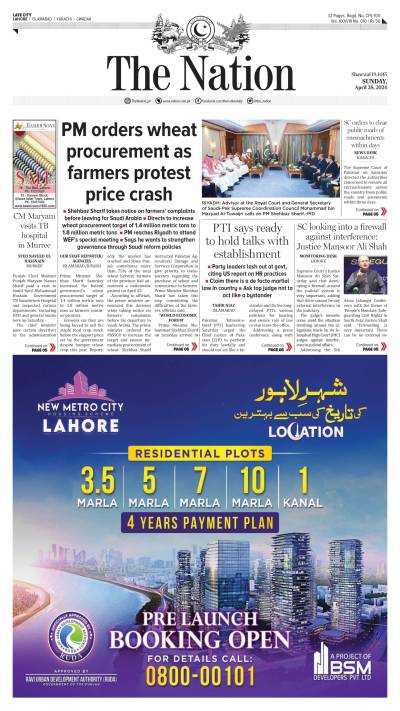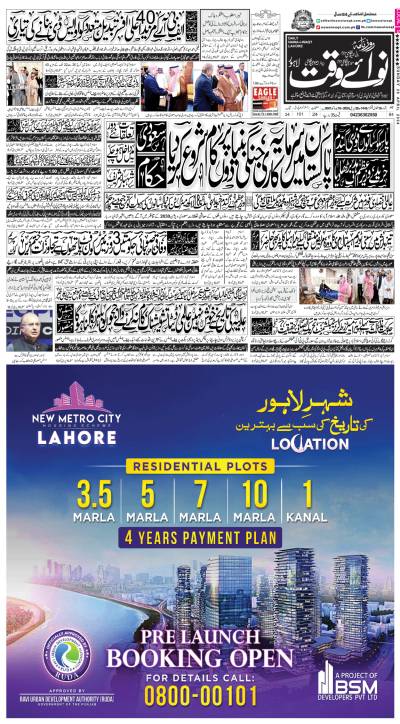Almost all his life, Imran Khan has been counting the last overs left and runs required to win. His current political calculations seem to be no different. He has to marry, we hear, after an election that will take him to the Prime Minister house. This is a fact that shouldn’t be analysed lightly. If he becomes Prime Minister in 2014, he will not regret to have failed after five years in 2019. But if he waits to become prime minister in 2018 as per constitutional schedule then he might not be physically and mentally fit enough to carry the burden of failure at the age of 73, i.e after completion of his five year term in 2023.
So for him, the earlier he takes the wickets, the lesser of Nawaz’s performance score will he have to beat with more stamina and charisma in 2014 than in 2018. All this explains IK’s race against time politically, apart from some other very private and personal ambitions that every politician harbours. An ageing fast bowler is naturally compelled for a shortened run up and a quickened spell.
Imran Khan is 63. He will be 68 in 2018 when the next general elections are due and if his premiership materializes.
He has publicly announced his intentions to get married but there is a problem here. In his own words he has to get married in a Naya Pakistan (a new Pakistan), for which his protest sit-in at Islamabad has entered its 50th day without any result.
Apparently, it’s a catch-22 for the former skipper. Should he marry first or bury the Nawaz government? In other words should he marry at the “marriageable” age of 63 or “manageable” stage of 68? Similarly, and almost as if in metaphor, should he be prime minister at the age of 63 or 68? Khan has to now prioritize his personal and political ambitions. His divorce from Jemima too, cannot be divorced from his political ambitions. Could he have, for example, won the 2013 elections in KPK with Jemima standing by his side? Or could IK today stand on a container with Jemima and muster the political support for a Naya Pakistan? Of course not. With right wingers like those in PML-N, it would be difficult and IK knew that well in time. The timings of his personal decisions have never been without a political timeline. Seen in this context, Khan’s announcement for marriage after early elections explains his hurried bowling spell with short run ups to shatter Nawaz Sharif’s stump. Marriage indeed is politics of convenience and politics a marriage of convenience.
For some, if Imran Khan marries before elections he might lose his electoral appeal amongst the majority of Pakistani women! They are not only his most likely voters (read: admirers), but a huge political force that influences the male voting population. Khan’s pre-election marriage might also expose him to his political rivals’ ruthless hounding of his new life partner, obviously a Pakistani this time. In such a situation Khan’s personal strength might become his political weakness ahead of any electoral battle. So the best option for Khan, for some, is to look for a First Lady instead of an ordinary wife at the devious age of 63 even if it takes a constitutional deviation. Because not many old men believe in deviation at the age of 68.
Why should people be surprised if our skipper wants to get married four years younger than he might have to under the constitution, i.e in 2018. If Khan wants to be the prime minister first and a bridegroom later and if the people of Pakistan vote ‘Yes’ to the preposition why should Nawaz Sharif be a hurdle in the way? Nawaz really must be considerate about the skipper’s desire and put himself in poor Khan’s shoes, asking from his heart, “If I had a choice (or opportunity) to remarry at the age of 63 or 68, wouldn’t I opt for the earlier-the-better option?”
Apart from the fact of the ageing bridal charisma of Imran Khan, he also seems to be unsure about his scheduled election battle in 2018. Four years is indeed too long a period for a Pakistani prime ministerial candidate. Many things can happen during this time including a possible accidental disintegration of the party whose only center of gravity is a former cricket hero. Apart from such an eventuality, Khan will also have to show some results after his party’s five year rule in Khyber Pukhtoonkhawa. In a typical Pakistani economic situation, no political party has ever and can ever be re-elected for its performance. So why should Khan sit in an exam paper for which he is not prepared. Why not fail as a skipper of a national team than a provincial cricket manager? After all, failures to deliver in Pakistani politics are never punished. In these circumstances, when the batsman is giving no gaps to the fast bowler in front of wickets, then bouncers aimed at the bones are a devious way of sending the player away on a stretcher.
The writer is a senior supreme court reporter and anchor for Waqt News.
matiullahjan@gmail.com





